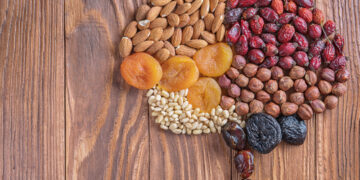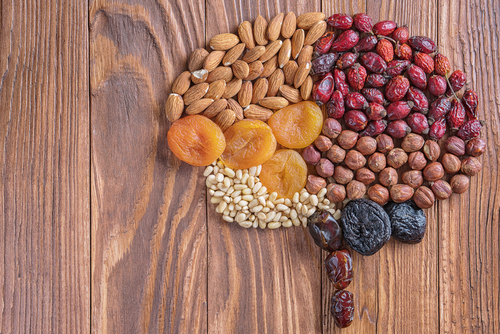Food and Mood Are Deeply Connected
When we talk about mental health, we often start with external tools—therapy, exercise, mindfulness, medication. And while each of these can play an essential role, there’s one piece that’s sometimes overlooked: what we eat, day in and day out.
The brain doesn’t float above the body as a separate system. It’s a hungry, living organ with constant needs. It draws fuel and nourishment from every bite of food you eat. That means the quality of what you feed your body directly shapes the way your brain functions—how clearly you think, how steadily you focus, how well you handle stress, and how you feel emotionally throughout the day.
Food isn’t just fuel. It’s chemistry. And it has the power to either support or disrupt your emotional wellbeing.
Ad Banner #1
Placeholder for the first ad.
How Nutrients Shape Your Mental Landscape
The nutrients that support brain health aren’t niche or exotic. They’re found in foods that grow naturally, close to the earth, often with short ingredient lists and vibrant colors. Let’s take a closer look at the key players and how they show up in real food.
Omega-3 Fatty Acids: Fuel for the Mind
Omega-3s—particularly DHA and EPA—are structural building blocks of the brain. They help strengthen cell membranes, reduce neuroinflammation, and improve communication between brain cells. Low levels of omega-3s have been linked to depression, anxiety, and cognitive decline.
Where to find them naturally:
-
Ground flaxseeds added to oatmeal or smoothies
-
Chia seed puddings soaked overnight with almond milk and cinnamon
-
Walnuts sprinkled on top of roasted vegetables or folded into homemade granola
-
Cold-water fish like sardines, mackerel, or anchovies (if not fully plant-based)
You don’t need supplements if you’re eating these regularly. A tablespoon of flaxseed a day, along with a few servings of walnuts or chia each week, can provide a strong foundation.
B-Vitamins: Your Brain’s Maintenance Crew
B-vitamins—especially B6, B12, and folate—are involved in synthesizing neurotransmitters like serotonin, dopamine, and GABA. These are the messengers that keep your mood stable, your focus sharp, and your nervous system grounded.
Deficiencies in B-vitamins are increasingly common, particularly among people under chronic stress or following restrictive diets.
Whole-food sources include:
-
Lentils, chickpeas, and black beans in hearty stews or tossed into salads
-
Dark leafy greens like spinach and Swiss chard, sautéed with garlic and olive oil
-
Nutritional yeast sprinkled on roasted vegetables or used in plant-based sauces
-
Eggs from well-raised hens, soft-boiled or folded into vegetable omelets
-
Whole grains like oats, quinoa, and brown rice—soaked and rinsed to support absorption
Try combining folate-rich lentils with brown rice and greens for a comforting, B-vitamin-rich bowl that also supports gut health and sustained energy.
Magnesium: The Calming Mineral
Magnesium is a quiet hero. It supports nervous system function, reduces anxiety, promotes better sleep, and helps regulate the body’s stress response. It also plays a role in serotonin production.
Modern diets tend to be low in magnesium, partly because it’s stripped from processed grains and foods.
Support your system naturally with:
-
Pumpkin seeds (a small handful contains nearly 40% of your daily needs)
-
Cooked black beans with cumin and lime
-
Almonds or cashews as a quick snack or added to grain bowls
-
Steamed or sautéed spinach, kale, or beet greens
-
Dark chocolate (the real kind—70% cacao or more, with minimal added sugar)
If you feel tension, muscle tightness, irritability, or poor sleep, it may not just be stress—it could be a subtle magnesium deficit. Real food is your first and best solution.
Antioxidants: Protecting the Brain from Within
The brain is sensitive to oxidative stress—tiny imbalances that build up over time due to poor diet, chronic stress, and environmental toxins. Antioxidants help repair and prevent this damage, supporting clarity, memory, and long-term cognitive resilience.
Antioxidant-rich foods to include daily:
-
Blueberries or blackberries, tossed into porridge or eaten with a spoonful of nut butter
-
Beets, roasted until caramelized or shredded into slaws
-
Pomegranate seeds scattered over salads
-
Red cabbage, purple carrots, and dark greens
-
Green tea, hibiscus tea, and golden turmeric infusions
The deeper the color of a fruit or vegetable, the more antioxidants it typically contains. Eat the rainbow—not for trendiness, but for real, science-backed protection.
Ad Banner #2
Placeholder for the second ad.
Bringing Mental Nutrition to the Plate
The goal isn’t perfection—it’s rhythm. Instead of chasing quick fixes, nourish your brain by integrating these nutrients into meals you actually enjoy.
Here’s a simple day built around mental wellness:
Morning:
A bowl of warm oats cooked with plant milk, stirred with ground flaxseed and topped with blueberries and walnuts. Add a sprinkle of cinnamon and a touch of raw honey if desired.
Afternoon:
A large salad with mixed greens, shredded carrots, avocado, lentils, roasted beets, and sunflower seeds. Drizzle with a lemon-olive oil dressing and finish with a spoonful of hummus.
Evening:
A quinoa and black bean skillet with sautéed spinach, red bell pepper, cumin, and garlic. Serve with a dollop of guacamole and a side of roasted sweet potatoes.
Throughout the day:
Sip water, herbal teas, or infused waters (cucumber and mint, or orange peel and ginger). Avoid skipping meals or relying on caffeine for energy—those are the habits that wear the nervous system thin.
Food That Supports Your Resilience
Mental health isn’t one thing. It’s a mosaic of sleep, movement, environment, relationships—and yes, nutrition. Choosing foods that support your brain’s chemistry won’t make you immune to stress or sadness, but it will give you a stronger foundation. A steadier mood. A clearer head. A body that has the tools to respond to life’s challenges instead of being overwhelmed by them.
Start small. Add a handful of seeds to your breakfast. Choose greens that aren’t just decorative but functional. Build meals that include a variety of textures, colors, and whole ingredients. Over time, you’ll feel the difference—in your energy, your mood, your ability to focus.
Because food is information. And the brain is always listening.
























